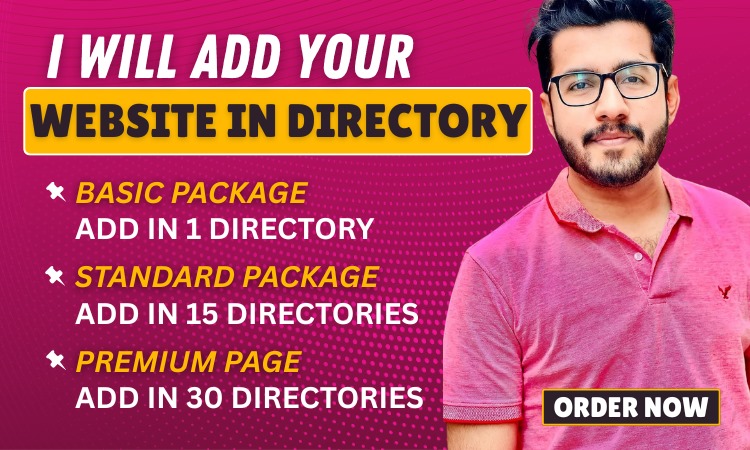Introduction
So, what exactly is accountancy? Think of it as the backbone of every financial decision a business or individual makes. It’s the broader field that covers everything from bookkeeping and auditing to tax planning and financial analysis.
While accounting is often seen as the practical side dealing with numbers daily accountancy is the full system that includes principles, laws, and strategies behind those numbers.
Difference Between Accounting and Accountancy
Is There Really a Difference? Yes—And It Matters
Here’s the short version:
-
Accounting is the task of preparing financial reports, filing taxes, and tracking expenses.
-
Accountancy is the discipline the entire field that includes accounting theory, rules, and structure.
If accounting is cooking a meal, accountancy is knowing the science of nutrition, recipes, and food safety.
Knowing the difference between accounting and accountancy can help you decide which path suits your career goals: being a bookkeeper, an auditor, or a full-fledged financial strategist.
Accountancy for Small Businesses
Why It’s a Must-Have
If you’re running a small business, wearing too many hats is part of the deal. But when it comes to finances, winging it isn’t wise. Accountancy for small businesses keeps you legally compliant, tax-efficient, and financially healthy.
From tracking daily transactions to forecasting for the next quarter, good accountancy keeps your business afloat.
Benefits for Small Business Owners
-
Better cash flow management
-
Accurate tax filings and deductions
-
Budget planning and cost control
-
Improved decision-making
Best Accountancy Software USA
Top Tools That Make Finances Easier
Let’s face it—manual spreadsheets are outdated. The best accountancy software USA makes tracking, planning, and filing a breeze. Here are the front-runners:
QuickBooks Online
Great for small to medium businesses. Includes invoicing, payroll, reporting, and integrations with banks.
Xero
Cloud-based and perfect for collaboration. Clean UI, real-time data, and multi-user access.
FreshBooks
Ideal for freelancers. Offers time tracking, expense management, and client invoicing.
Zoho Books
Affordable and robust. Best for growing startups needing automation and inventory tools.
Wave Accounting
Free and powerful. Best suited for solo entrepreneurs and microbusinesses.
Choosing the Right Software
Ask yourself:
-
Do I need payroll integration?
-
Do I require inventory management?
-
How many users will need access?
-
What’s my budget?
Freelance Accountancy Jobs USA
The Rise of the Remote Accountant
The digital age has opened a floodgate of opportunities in remote finance. Freelance accountancy jobs USA are everywhere—thanks to cloud tools, mobile clients, and a growing gig economy.
Popular Freelance Roles
-
Bookkeeper for solopreneurs
-
Tax consultant for seasonal needs
-
Virtual CFO for startups
-
Forensic accountant for legal matters
-
Audit prep assistant for mid-sized businesses
Platforms to Find Freelance Work
-
Upwork – High-volume of small and mid-sized gigs
-
Toptal – Premium clients and top-tier pay
-
LinkedIn – Direct outreach and job alerts
-
FlexJobs – Curated remote-friendly listings
-
PeoplePerHour – Great for short-term contracts
Income Potential
Hourly rates range from $25 to $150+, depending on expertise. CPAs and those with specialized skills like tax law or forensic work often command higher fees.
How to Start Freelancing in Accountancy
-
Certify Yourself – CPA or degree in accounting
-
Pick a Niche – Taxes, startups, e-commerce, healthcare, etc.
-
Create a Legal Entity – LLC, EIN, business bank account
-
Set Up Software – QuickBooks, Xero, or FreshBooks
-
Market Your Services – Build a website, use LinkedIn, join forums
Pros and Cons of Freelance Accountancy
Pros
-
Flexible schedule
-
Control over income
-
Work from anywhere
-
Choose clients and projects
Cons
-
Inconsistent income
-
Need for self-marketing
-
No employer-provided benefits
-
Must manage own taxes
Chartered Accountancy in USA
What Does It Mean in the U.S.?
Globally, chartered accountants are seen as high-level finance pros. In the U.S., this credential is equivalent to being a Certified Public Accountant (CPA).
However, professionals with international qualifications like ACCA (UK) or CA (India, Canada, etc.) often seek additional licensure to practice as chartered accountancy in USA.
Becoming a CPA in the USA
To become certified, you typically need to:
-
Hold a bachelor’s degree (usually 150 credit hours)
-
Pass all four sections of the CPA exam
-
Complete 1–2 years of relevant work experience
-
Meet your state’s specific licensing requirements
Career Options in U.S. Accountancy
-
Certified Public Accountant (CPA) – Public accounting, tax, auditing, consulting
-
Management Accountant – Internal budgeting, analysis, and reporting
-
Internal Auditor – Reviews internal systems and procedures
-
Forensic Accountant – Fraud detection and litigation support
-
Financial Analyst – Investment and business performance analysis
Skills That Set Accountants Apart Today
-
Mastery of digital tools and accounting software
-
Understanding of U.S. tax laws
-
Financial analysis and forecasting
-
Communication and client management
-
Cybersecurity awareness for handling sensitive data
Modern Trends in Accountancy
1. Automation
AI tools now handle:
-
Invoice generation
-
Bank reconciliations
-
Real-time reporting
2. Virtual CFO Services
Small businesses are hiring remote accountants to act as part-time CFOs for budgeting, fundraising, and growth planning.
3. ESG and Sustainability Reporting
Environmental, Social, and Governance metrics are becoming essential in financial reporting, especially for investors and public accountability.
4. Cryptocurrency and Blockchain
Accountants who understand digital assets and crypto taxation are in rising demand.
The Future of Freelance and Chartered Accountancy
As businesses grow leaner and more tech-enabled, both freelance accountants and chartered professionals will become more integral to strategic decision-making than ever before.
Whether you’re helping a startup track its expenses, or advising a global firm on international tax law, the opportunities are endless—especially if you keep up with tech trends and continue learning.
Conclusion
Accountancy in the USA is evolving quickly. From freelance accountancy jobs USA to mastering accountancy for small businesses, today’s financial professionals are more empowered than ever. Understanding the difference between accounting and accountancy helps clarify your role and responsibilities, while the right tools, like the best accountancy software USA, keep you efficient and error-free.
Whether you aim for traditional success through chartered accountancy in USA or carve your path as a freelance expert, the accounting world is full of opportunity, flexibility, and high earning potential.
FAQs
1. What’s the average income from freelance accountancy jobs in the USA?
It varies by skill and niche, but most freelancers earn between $30–$100 per hour, with CPAs commanding even higher rates.
2. What’s the best accountancy software for a beginner in the USA?
Wave is great for beginners because it’s free and easy to use. QuickBooks is also user-friendly and very popular.
3. Can I work as a chartered accountant in the USA with an international certification?
Yes, but you’ll likely need to pass the CPA exam or meet reciprocity requirements depending on your certification.
4. Do small businesses really need professional accountancy services?
Absolutely. Even basic guidance helps small businesses stay compliant, minimize taxes, and make smarter decisions.
5. What’s the main difference between accounting and accountancy?
Accounting is the action (doing the books), while accountancy is the whole field that includes the science, strategy, and principles behind it.




